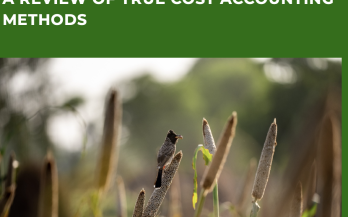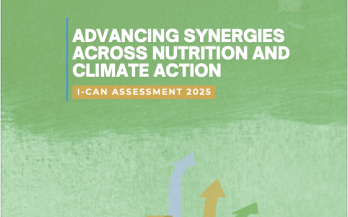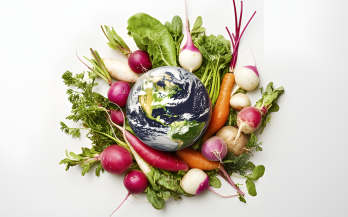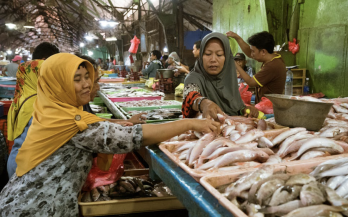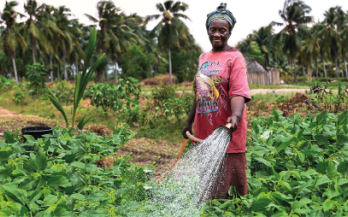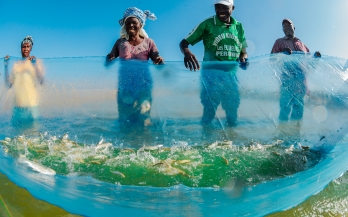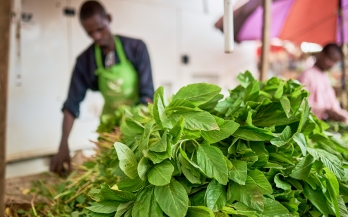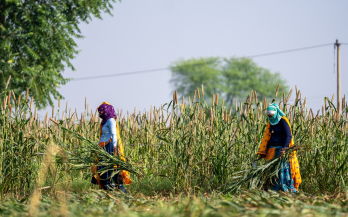- 28/11/2025
Global food systems face complex, multi-faceted challenges that greatly vary by context, and their environmental, health, and socio-economic impacts are equally diverse. A comprehensive understanding that integrates these disparate factors into unified, clear guidance is essential for decision-making, including policy measures and industry practices. True Cost Accounting (TCA) methodologies aim to meet this need by quantifying a wide spectrum of food systems-related benefits and costs in economic terms. We reviewed existing TCA frameworks, approaches, methods, and data sources used for measuring and monetising environmental externalities generated by food production and consumption. Our analysis of 85 recent publications (2018–2025) revealed several key patterns in current research. The literature shows a predominant focus on negative impacts, with greenhouse gas (GHG) emissions receiving primary attention. Studies mainly examined cereals, meat, and dairy, mostly in high-income and upper-middle-income country settings. TCA assessments employed three main methodological approaches: granular bottom-up, large-scale top-down, or comparative approaches, to capture environmental externalities.
Our results revealed a rapidly growing research area, characterised by a large variety of methods and data sources, while highlighting persistent technical challenges. The field faces several critical gaps, many of which reflect underlying methodological limitations in environmental impact assessments more broadly: little-to-no attention to lower-income countries; a predominant focus on high-value, commercially traded (often export-oriented) commodities; and limited consideration of systems dynamics and interconnections (e.g., product co-dependencies) in models. Addressing these challenges, combined with improved data availability, quality, and disaggregation, will be key for maximising TCA’s potential as an evidence-based policy and advocacy tool.
- 05/11/2025
The I-CAN Assessment 2025 aims to provide a snapshot into the current state of integration between climate and nutrition action across 16 indicators in policy and finance. Despite modest progress since 2023, the report makes clear that integration of climate and nutrition in key international and national policies and financing remains limited, slowing progress towards both reducing malnutrition and climate goals. However, the report also helps to highlight priority areas for action, spotlighting examples of best practice we can learn from as we progress into the second half of this critical decade for the SDGs and climate action.
- 14/10/2025
Through the Nourishing Food Pathways programme, GAIN has collaborated with Hystra on a new study exploring how investments in nutritious food value chains can deliver both nutrition and environmental benefits in Latin America, Sub-Saharan Africa, and South Asia. The research highlights opportunities for impact-oriented investors, specifically Development Finance Institutions (DFIs), to direct capital towards businesses that improve diets while advancing sustainable food systems.
The study prioritises six nutritious food value chains; fruits, vegetables, legumes, milk, poultry, and aquaculture, selected for their inherent nutritional value, potential to reduce environmental pressures and high investment potential. In each region, case studies of investable enterprise illustrate how targeted investments can expand access to affordable and diverse nutritious foods, reduce post-harvest losses, promote climate-friendly practices such as regenerative agriculture and circular resource use, and enhance productivity.
The report provides practical insights for DFIs and other impact-oriented investors who are committed to advancing SDG2 (Zero Hunger) and SDG13 (Climate Action). By making strategic investments in businesses operating in these value chains, investors can simultaneously reduce environmental impacts and expand access to nutritious, affordable foods in local markets, creating a virtuous cycle of sustainable growth and resilience.
- 29/09/2025
The world is currently facing two interconnected and severe crises: widespread malnutrition and environmental degradation. Food systems are central to both issues, as they are responsible for a significant portion of greenhouse gas emissions, natural resource depletion, and environmental damage, while simultaneously feeding billions of people. Diets are a crucial link between human and planetary health and have been identified as a key lever to address both the climate and malnutrition crises. However, there are inherent trade-offs between nutritional and environmental goals, making it difficult to find solutions that simultaneously improve both outcomes. This paper introduces nutritional Life Cycle Assessment (nLCA) as an evidence-based tool to guide policy, programmatic, and industry decision-making, and demonstrates how nLCA can provide actionable, context-specific insights that help reconcile (often competing) nutritional and environmental priorities.
- 09/09/2025
I-CAN presents a new playbook offering step-by-step guidance to embedding nutrition-sensitive ambition and action into nationally determined contributions (NDCs). Drawing on I-CAN experience support climate-nutrition integration in different countries, it highlights practical entry points, resources, and provides policy examples to create nutrition–climate win-wins across food systems, health, agriculture, and social protection. By aligning nutrition with climate goals, countries can strengthen food and health systems, advance progress on the SDGs, and pursue the Paris Agreement 1.5 °C target.
- 06/12/2024
In 2023 and 2024, one of the focus areas of discussions within the Netherlands Working Group on international Nutrition (NWGN) platform was the nexus between climate change and sustainable healthy diets with a focus on animal-sourced foods (ASFs), reflecting the protein transition discussion in the Netherlands, while realising that this transition to a more plant-based protein diet might not be appropriate for the contexts in Low Middle Income Countries (LMIC)s.
With this position paper the NWGN, and Clim-Eat (a think-and-do tank that aims to accelerate food systems transformation under climate change) aim to stimulate dialogue on the consumption of ASFs in LMICs within the Dutch government at large, within the ministries and embassies as well as among our members and partners. The aim is that these dialogues will translate into policies and programmes, diplomacy and facilitation and will enable partners in the Netherlands and LMICs to take a stand that addresses the nutritional needs of vulnerable people while also considering climate change.
- 07/11/2024
A diverse diet is important for health and well-being, contributing to lower malnutrition, including micronutrient deficiency diseases (hidden hunger), as well as underweight, overweight, and associated ill health like low immune system function and non-communicable diseases. It is highlighted under Rwanda’s draft Strategic Plan for Agricultural Transformation (PSTA-5) (2024 to 2030).
- 10/09/2024
Environmental factors impact human health and nutrition through various pathways, and these impacts can be felt disproportionately by already vulnerable groups like women and children.
- 12/08/2024
Climate change is a threat to the sustainability of global and national food systems. Unsustainable food systems cannot ensure food and nutrition security or healthy eating patterns. Climate change is already altering agricultural production, food processing, distribution, and conSumption. Its impacts disrupt food supply, limiting people’s access to the diverse, safe, and nutritious foods that make up high-quality diets.
- 22/07/2024
Environmental factors impact human health and nutrition through various pathways, and these impacts can be felt disproportionately by already vulnerable groups like women and children.
